Top 10 Nobel Prize Laureates in Medicine
The Top Ten
1 Alexander Fleming
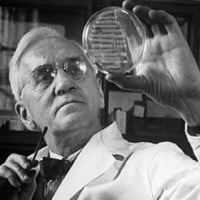 Alexander Fleming is celebrated for his discovery of penicillin, the first antibiotic, in 1928. This breakthrough has saved countless lives by effectively treating bacterial infections.
Alexander Fleming is celebrated for his discovery of penicillin, the first antibiotic, in 1928. This breakthrough has saved countless lives by effectively treating bacterial infections.
 Alexander Fleming is celebrated for his discovery of penicillin, the first antibiotic, in 1928. This breakthrough has saved countless lives by effectively treating bacterial infections.
Alexander Fleming is celebrated for his discovery of penicillin, the first antibiotic, in 1928. This breakthrough has saved countless lives by effectively treating bacterial infections.
2 Frederick Banting
 Frederick Banting, alongside Charles Best, co-discovered insulin in 1921, transforming the treatment of diabetes by allowing it to be managed through insulin injections. His work has been a cornerstone in the fight against diabetes.
Frederick Banting, alongside Charles Best, co-discovered insulin in 1921, transforming the treatment of diabetes by allowing it to be managed through insulin injections. His work has been a cornerstone in the fight against diabetes.
 Frederick Banting, alongside Charles Best, co-discovered insulin in 1921, transforming the treatment of diabetes by allowing it to be managed through insulin injections. His work has been a cornerstone in the fight against diabetes.
Frederick Banting, alongside Charles Best, co-discovered insulin in 1921, transforming the treatment of diabetes by allowing it to be managed through insulin injections. His work has been a cornerstone in the fight against diabetes.
3 Robert Koch
 Robert Koch made pivotal contributions to bacteriology, notably identifying the causative agents of tuberculosis, cholera, and anthrax. His development of Koch's postulates in the late 19th century laid the groundwork for linking specific microorganisms to specific diseases.
Robert Koch made pivotal contributions to bacteriology, notably identifying the causative agents of tuberculosis, cholera, and anthrax. His development of Koch's postulates in the late 19th century laid the groundwork for linking specific microorganisms to specific diseases.
 Robert Koch made pivotal contributions to bacteriology, notably identifying the causative agents of tuberculosis, cholera, and anthrax. His development of Koch's postulates in the late 19th century laid the groundwork for linking specific microorganisms to specific diseases.
Robert Koch made pivotal contributions to bacteriology, notably identifying the causative agents of tuberculosis, cholera, and anthrax. His development of Koch's postulates in the late 19th century laid the groundwork for linking specific microorganisms to specific diseases.
4 Gerty Cori
Gerty Cori, alongside her husband Carl Cori, elucidated the process of how glycogen is broken down and synthesized in the body. Their work on the catalytic conversion of glycogen paved the way for understanding the biochemical basis of cellular energy supply.
5 Ivan Pavlov
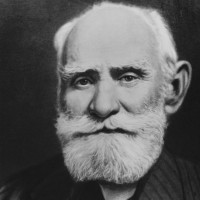 Ivan Pavlov is renowned for his research on classical conditioning, demonstrating the fundamental principles of learning through his experiments with dogs. His work laid the foundation for much of modern psychology and educational theory.
Ivan Pavlov is renowned for his research on classical conditioning, demonstrating the fundamental principles of learning through his experiments with dogs. His work laid the foundation for much of modern psychology and educational theory.
 Ivan Pavlov is renowned for his research on classical conditioning, demonstrating the fundamental principles of learning through his experiments with dogs. His work laid the foundation for much of modern psychology and educational theory.
Ivan Pavlov is renowned for his research on classical conditioning, demonstrating the fundamental principles of learning through his experiments with dogs. His work laid the foundation for much of modern psychology and educational theory.
6 August Krogh
August Krogh was awarded the Nobel Prize for his discovery of the capillary motor regulating mechanism. His work significantly advanced our understanding of how blood flow is regulated in the smallest blood vessels.
7 Tu Youyou
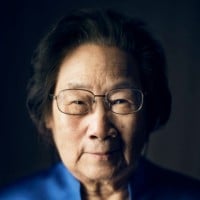 Tu Youyou's discovery of artemisinin has significantly reduced the mortality rates for patients suffering from malaria. Her work represents a significant breakthrough in traditional Chinese herbal medicine research, offering a lifesaving treatment for malaria patients worldwide.
Tu Youyou's discovery of artemisinin has significantly reduced the mortality rates for patients suffering from malaria. Her work represents a significant breakthrough in traditional Chinese herbal medicine research, offering a lifesaving treatment for malaria patients worldwide.
 Tu Youyou's discovery of artemisinin has significantly reduced the mortality rates for patients suffering from malaria. Her work represents a significant breakthrough in traditional Chinese herbal medicine research, offering a lifesaving treatment for malaria patients worldwide.
Tu Youyou's discovery of artemisinin has significantly reduced the mortality rates for patients suffering from malaria. Her work represents a significant breakthrough in traditional Chinese herbal medicine research, offering a lifesaving treatment for malaria patients worldwide.
8 Francis Crick
Francis Crick, along with James Watson and Maurice Wilkins, discovered the double helix structure of DNA in 1953, a fundamental breakthrough in understanding genetic information storage and transmission. This discovery has been crucial in the development of genetic engineering and biotechnology.
9 Gertrude B. Elion
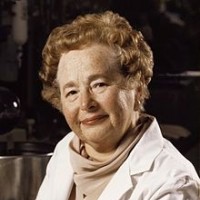 Gertrude B. Elion developed a multitude of drugs, including those for leukemia, herpes, and AIDS. Her innovative research methods led to significant breakthroughs in pharmacology, for which she shared the Nobel Prize in 1988.
Gertrude B. Elion developed a multitude of drugs, including those for leukemia, herpes, and AIDS. Her innovative research methods led to significant breakthroughs in pharmacology, for which she shared the Nobel Prize in 1988.
 Gertrude B. Elion developed a multitude of drugs, including those for leukemia, herpes, and AIDS. Her innovative research methods led to significant breakthroughs in pharmacology, for which she shared the Nobel Prize in 1988.
Gertrude B. Elion developed a multitude of drugs, including those for leukemia, herpes, and AIDS. Her innovative research methods led to significant breakthroughs in pharmacology, for which she shared the Nobel Prize in 1988.
10 Willem Einthoven
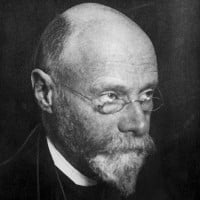 Willem Einthoven invented the electrocardiogram (ECG), a crucial tool in diagnosing heart diseases. His work at the turn of the 20th century has been instrumental in advancing cardiovascular medicine.
Willem Einthoven invented the electrocardiogram (ECG), a crucial tool in diagnosing heart diseases. His work at the turn of the 20th century has been instrumental in advancing cardiovascular medicine.
 Willem Einthoven invented the electrocardiogram (ECG), a crucial tool in diagnosing heart diseases. His work at the turn of the 20th century has been instrumental in advancing cardiovascular medicine.
Willem Einthoven invented the electrocardiogram (ECG), a crucial tool in diagnosing heart diseases. His work at the turn of the 20th century has been instrumental in advancing cardiovascular medicine.The Contenders
11 Albert Szent-Györgyi
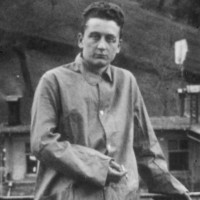 Albert Szent-Györgyi was awarded the Nobel Prize for his discoveries in connection with the biological combustion processes, with special reference to vitamin C and the catalysis of fumaric acid. His work has had a profound impact on our understanding of cellular metabolism and health.
Albert Szent-Györgyi was awarded the Nobel Prize for his discoveries in connection with the biological combustion processes, with special reference to vitamin C and the catalysis of fumaric acid. His work has had a profound impact on our understanding of cellular metabolism and health.
 Albert Szent-Györgyi was awarded the Nobel Prize for his discoveries in connection with the biological combustion processes, with special reference to vitamin C and the catalysis of fumaric acid. His work has had a profound impact on our understanding of cellular metabolism and health.
Albert Szent-Györgyi was awarded the Nobel Prize for his discoveries in connection with the biological combustion processes, with special reference to vitamin C and the catalysis of fumaric acid. His work has had a profound impact on our understanding of cellular metabolism and health.
12 Harald zur Hausen
Harald zur Hausen identified human papillomavirus (HPV) as the cause of cervical cancer, leading to the development of the HPV vaccine. His research has provided a solid foundation for efforts to prevent cervical cancer through vaccination.
13 Paul Ehrlich
Paul Ehrlich pioneered the field of chemotherapy with his work on syphilis treatment and his "magic bullet" concept for targeting disease-causing organisms. He laid the groundwork for the modern development of drugs that selectively target pathogens.
14 Niels Ryberg Finsen
BAdd New Item